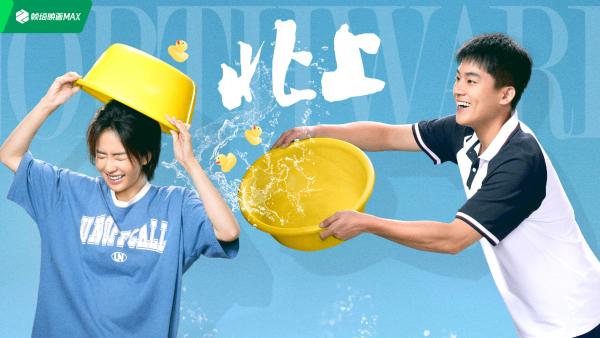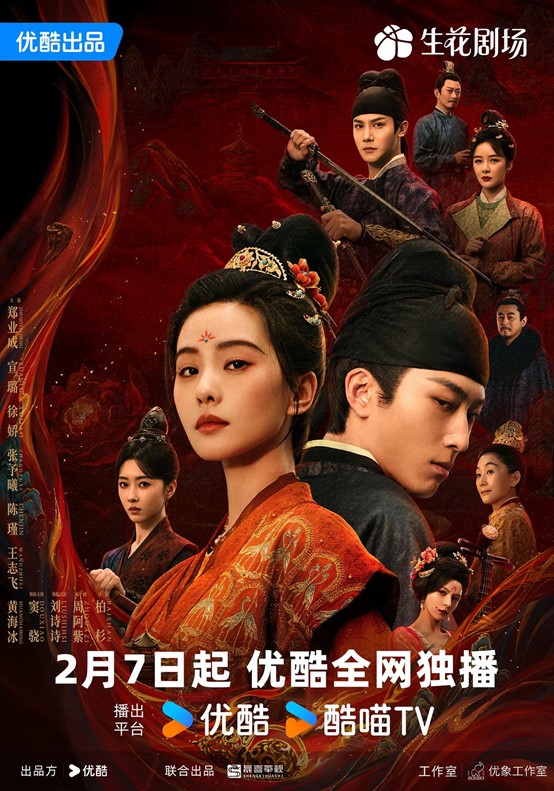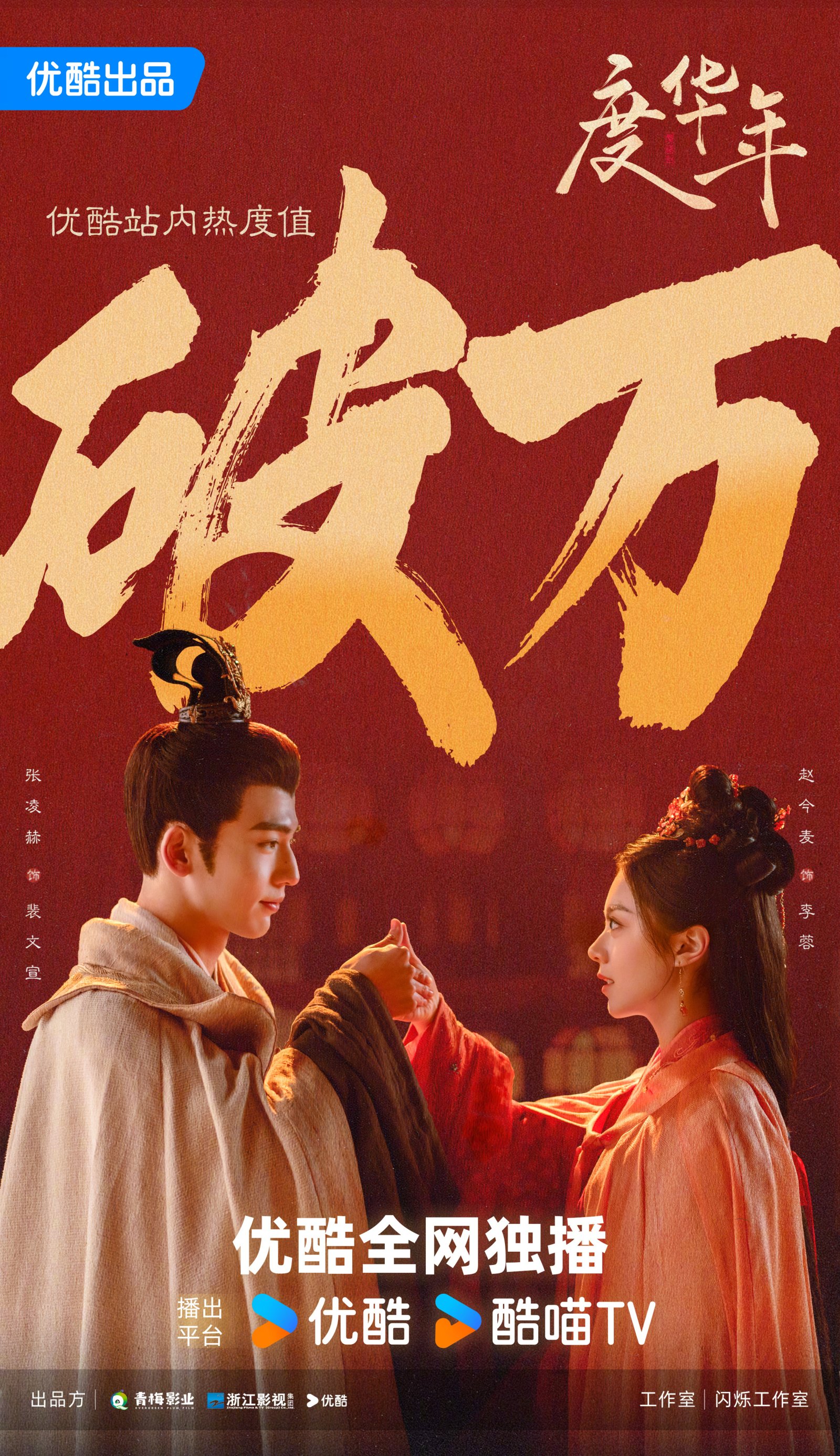
Recently, the drama "The Year of Duhua" was released on Youku, and just a few days after its premiere, it garnered a remarkable buzz, quickly solidifying its status as one of the platform's top dramas of the year. Following its broadcast, the series sparked discussions from various angles. Once it concluded its online run, the show’s producer Yuan Yumei shared some stories and insights from the creative process in an interview with The Paper.

Poster for "The Year of Duhua" hitting over ten thousand views on Youku
Yuan Yumei has a strong track record as a producer, having worked on several hit web series such as "Unexpected Events," "The Longest Night," "The Cambrian Period," and "Shake It, Ab." With extensive practical experience in production, she has developed a unique perspective on content selection and quality control.
When she first encountered the original work "Princess Chang," from which "The Year of Duhua" is adapted, Yuan was immediately drawn to the "three people reborn" concept. She also appreciated the idea of exploring whether life and marriage could start anew if the timeline were pushed forward by twenty years. Her goal was not only to tell a love story but also to encourage a reevaluation of marriage and emotional issues. "Many people have idealized notions about relationships in today’s social discourse; they pertain to formulas and labels. However, I want to discuss trust and choices within relationships: when issues arise between two people, how do we mend and correct those problems?"
In her view, the original author Mo Shubai accurately captured emotional nuances, creating a solid storyline. However, given the original text spans over nine hundred thousand words, adapting it into a script required a reworking of its narrative structure, character motivations, court politics, and more. "We inevitably had to make trade-offs," Yuan explained. "We must first ensure that iconic scenes and highlights remain. The journey from novel to script is a long and complex one, while also taking various requirements and reviews into account.”
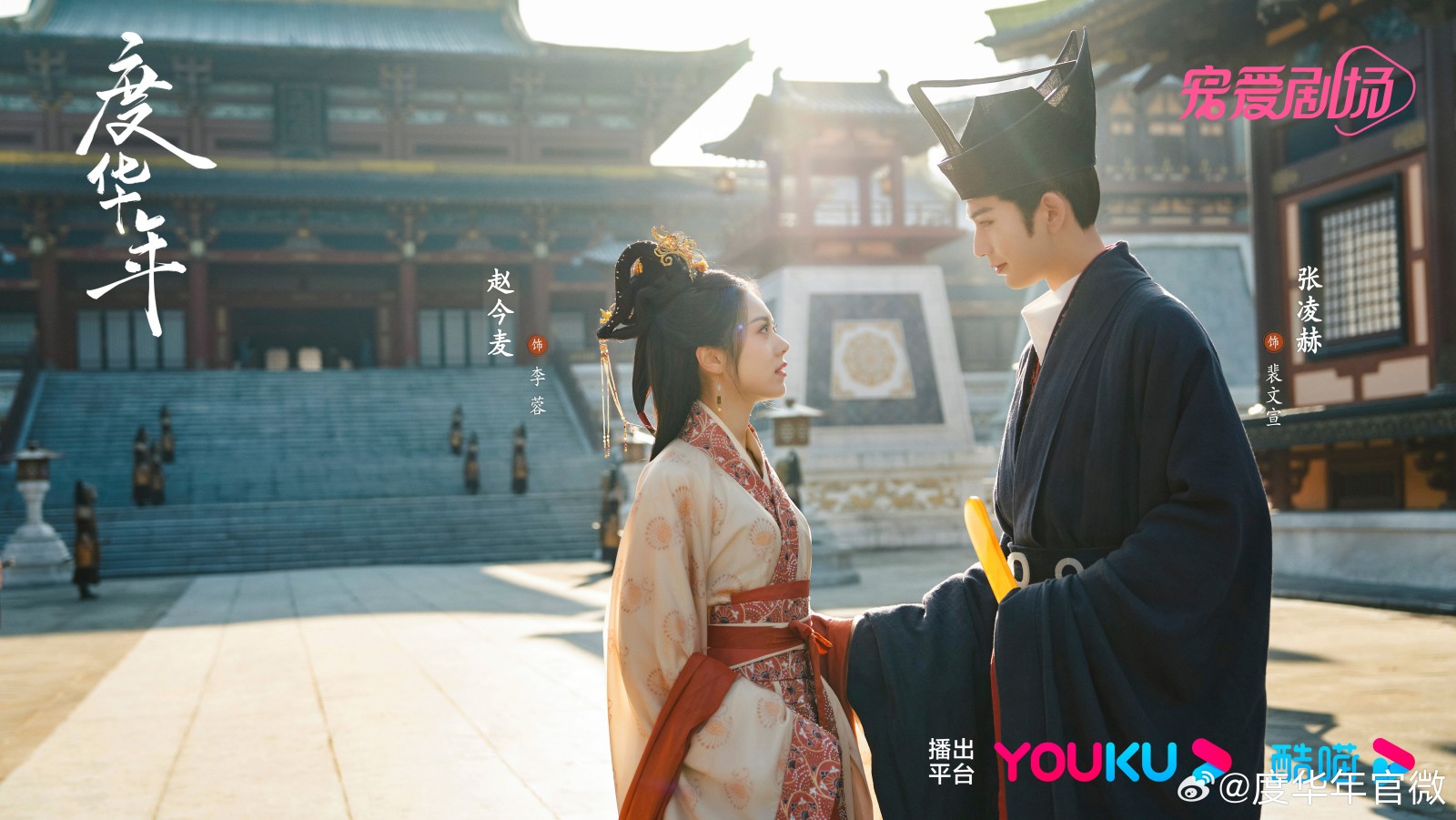
Still from "The Year of Duhua"
For the script, Yuan invited Raou Jun, the writer of "Flower Bone," to establish a storyline focused more on emotional depth than political maneuvering. This worldview of court conflicts provided a foundation for the changing emotional ties among characters driven by differing political views, and it also accelerated the emotional crisis and conflict between the leads, allowing them to rediscover themselves and each other amidst political strife.
Yuan believes that in their previous life, the protagonists Li Rong and Pei Wenxuan were driven apart for various reasons, even coming to the point of confronting each other with blades. However, in this life, they carry their past experiences and perspectives, which have shifted. She notes that in the story, for them to love each other, they first need to resolve their differing values. "Li Rong has grown politically mature; she wields power to protect those around her, and through this process, she gradually understands the humble Pei Wenxuan, aspiring to create a fairer world, eventually aligning their values." The emotional journey depicted in the narrative clearly shows stages: from enemies to allies, friends to lovers, and finally to soulmates who are deeply connected.
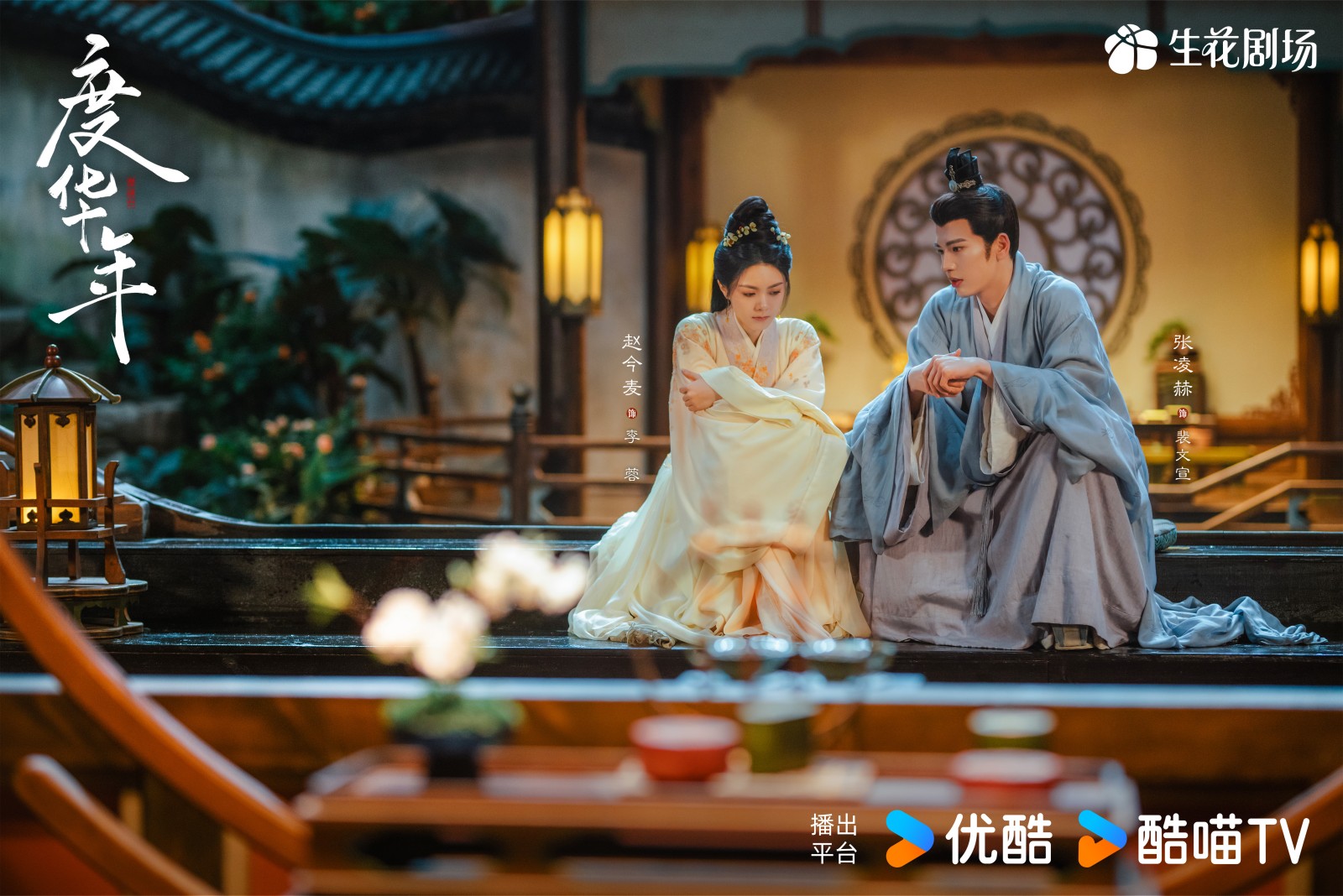
Still from "The Year of Duhua"
Adding a Little Bit of Excellence at Every Step
"Many industries can separate management and execution. But as content managers in the film and television industry, we must understand the content. It’s a cycle of being on the front lines and going back to the front lines because we are faced with numerous decision points every day and have to solve problems continuously. Not understanding the content while managing can lead to disaster.”
Yuan Yumei is a relatively rare total producer who engages deeply with the project from start to finish. She has devoted substantial energy to ensure the best presentation of the project, assembling a talented creative team, including art director Han Zhong, who has worked on acclaimed projects such as "Awakening Era" and "The Wind Rises in Longxi."
The entire team consists of passionate creatives. Yuan recalls, “Each day, I would run to the set with the directors, cinematographers, and lighting technicians, and after working all day, we’d run back to the monitoring station. At the end of the day, we would jog back to the hotel to hold a briefing for the following day."
She would spend her days in front of the monitor, alert to every direction, revising the script as necessary, remaining on set for more than seven months from preparation through filming. She became so familiar with the project that even during interviews, she could still recite lines and identify specific scenes and their episodes.
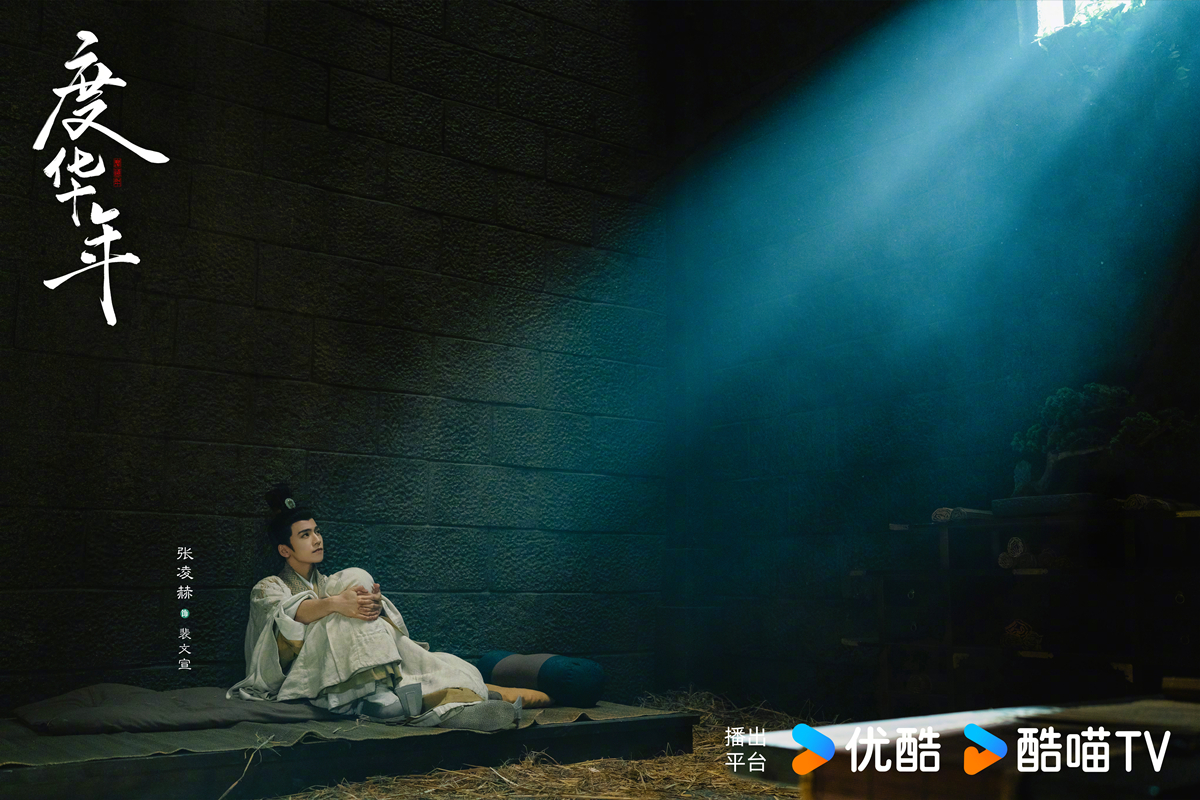
Still from "The Year of Duhua"
Yuan truly understands how challenging it is to coordinate a large crew of hundreds of people: "Each department is professional, but due to different job roles, everyone focuses on different priorities. It’s challenging for them to fully collaborate with other departments while concentrating on their own work." Various issues inevitably arise during the creative process, which requires the producer to have a holistic view of the project and coordinate all aspects effectively. Team members feel comfortable approaching Yuan with their concerns because she consistently stands with them, understands the pain points and highlights of various departments, and offers solutions. When decisions need to be made, she doesn’t hesitate. Yet, she knows that every choice increases the pressure on her shoulders, as "once you make a suggestion or decision, you have to take responsibility for the outcome and honor the trust placed in you by everyone involved."
From the beginning, Yuan was engaged in the creative process, nearly familiar with the emotions and character states in every significant scene. During filming, she frequently pointed out areas where the dramatic situations and performances could be optimized. For instance, in a scene where the male lead falls into the water, the original plan had the female lead standing by the water speaking to him. Yuan felt this lacked a certain emotion, so she suggested to the director to have the female lead say a line while standing and then crouch down to continue speaking; after saying, “Your life depends on my mood,” she would crouch playfully and add, “I really enjoy this height difference; why don’t we have this conversation?” This transformed the scene from a cold superiority into a game of cat and mouse, introducing richer emotional dynamics.
“If the state, emotion, or lines in a scene are incorrect, we can only rely on post-editing to select the right shots and do voiceovers to correct them, which leaves very limited room for error.” Thus, she places great importance on the accuracy of individual scenes during filming. “Although it may seem like a simple adjustment, the result can be entirely different. These corrections can only be made on-site; if they aren’t addressed at that moment, they might lead to shock in the editing room, where all strengths and weaknesses are amplified.”
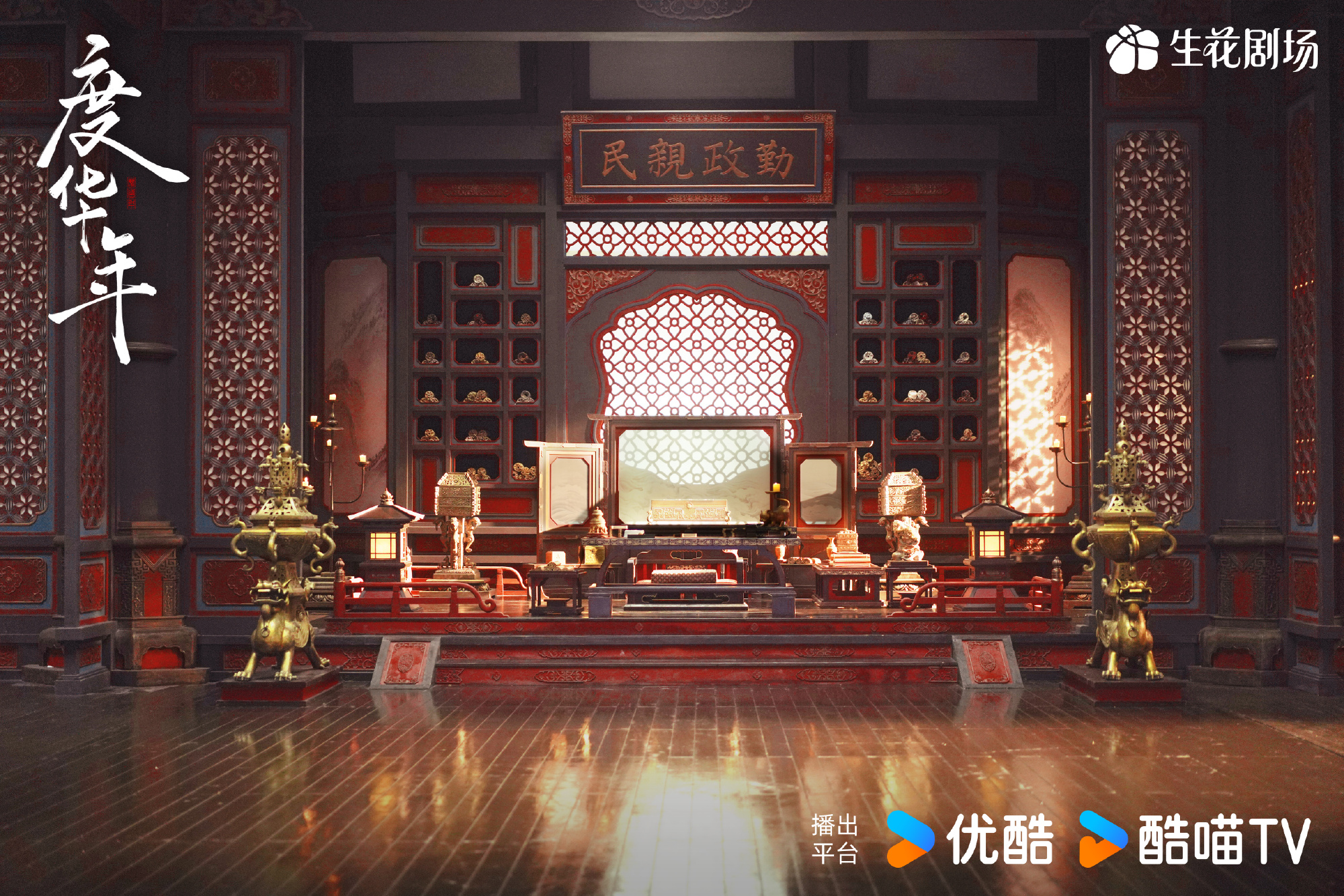
Still from "The Year of Duhua"
For example, in the art department, the original design for the Inspector's Office was based on traditional costume dramas, resulting in a very masculine overall visual presentation. However, this was the workplace of the female characters Li Rong and Shangguan Ya, both of whom held power. Yuan insisted on modifications to make the environment reflect feminine qualities. When evaluating a hot spring scene, she pointed out that the pool height was inappropriate; while the art and construction team felt it was fine, Yuan realized they were using their own height as a reference, which wasn’t suitable for the female lead. Unable to articulate it clearly, she jumped into the pool to demonstrate, saying, “This height isn’t right for an average female; being too deep or too shallow can affect the actor’s performance.”
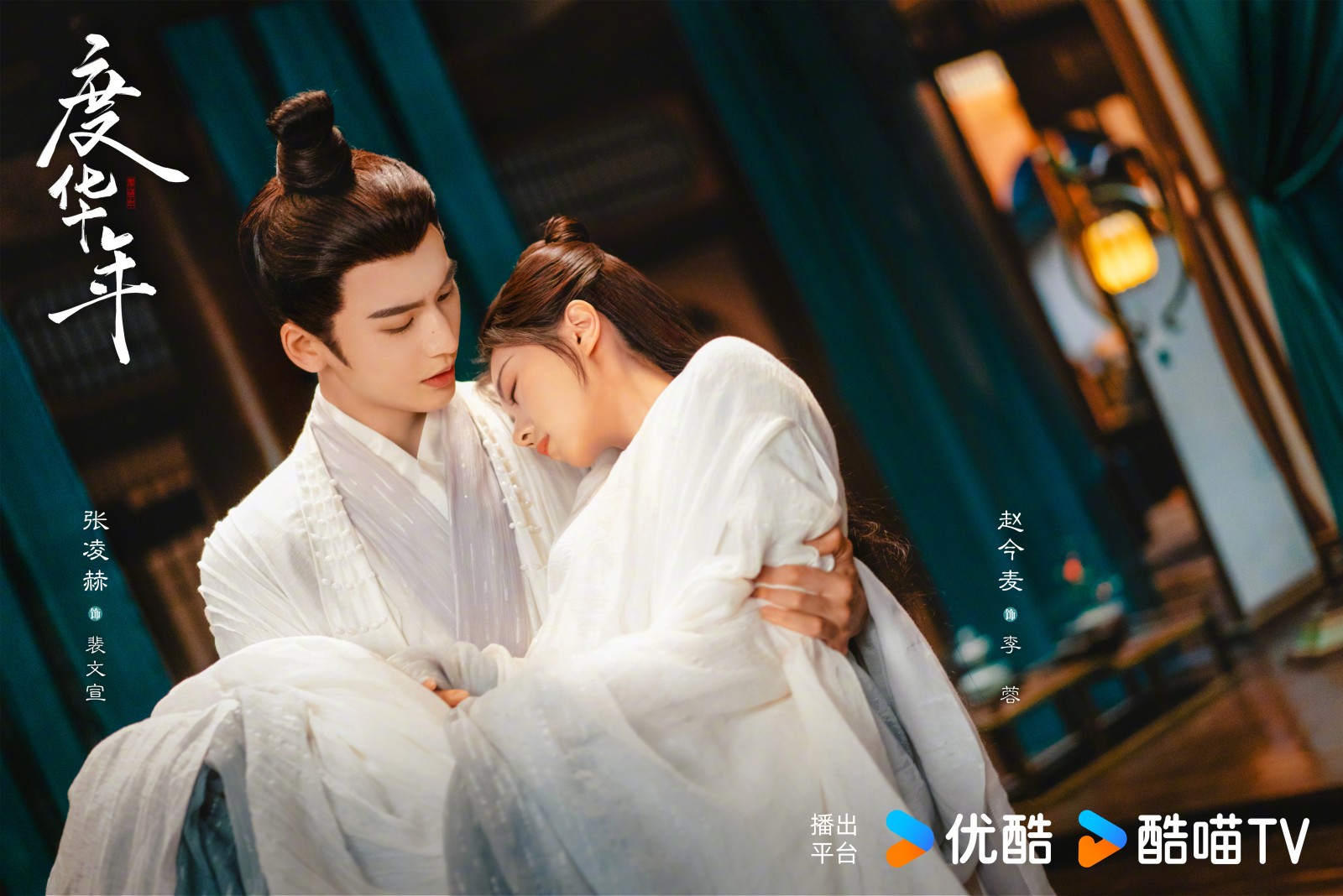
Still from "The Year of Duhua"
The costume team also communicated closely with her, as she was the most familiar with the characters and script, considering the emotional conflicts and interactions. Every outfit was stored in her mind; on location, she could promptly point to which costume should be sent over for any changes. She also gave convenient and memorable names to the costumes. She scrutinized character designs, rejecting overly mature styles featuring a lot of extravagant ornaments in favor of airy and elegant designs that emphasized the character’s silhouette. In the internal makeup group, she provided optimization suggestions for all roles, from leads to supporting characters, ensuring that actors felt they looked even more handsome and beautiful, which encouraged them to seek her feedback.
In the finale, male leads entered the palace wearing oversized official robes. Yuan quickly reminded her team that these costumes were not suitable for action scenes, necessitating an urgent redesign to make the outfits more convenient for fighting. She was adamant that emotional scenes should be distinct from political conflict scenes; for romantic moments, she felt Li Rong’s attire should incorporate “a sense of romance.” She expressed this idea of “suitable for hugging,” meaning the clothing's materials, styles, and colors should evoke softness and romance. Initially, there were numerous royal attire options, but pastel and lightweight outfits, added based on Yuan's suggestions, enhanced the character's look.
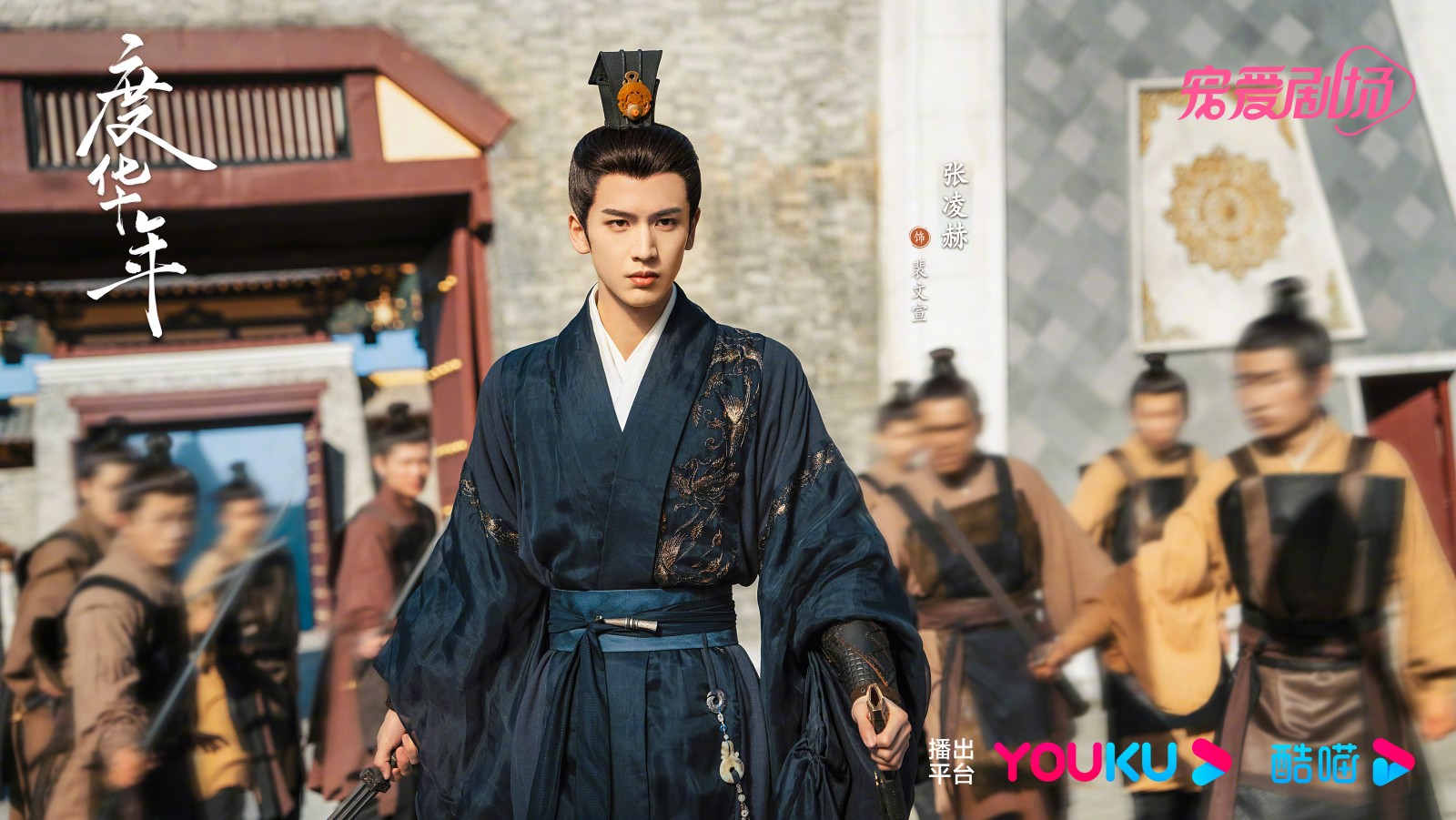
Still from "The Year of Duhua"
The crew jokingly remarked, “Mei Jie’s eyes are like rulers.” For example, she could tell when there was a change in an actor's brows, even if the makeup techniques were identical to those previously used. Upon further inquiry, it turned out an actor had slightly tweaked their eyebrows. In another scene featuring Zhao Jinmai in a cave, Yuan noticed discrepancies in lip color between two adjoining scenes. The makeup artist insisted nothing had been altered, but Zhao Jinmai realized, “Mei Jie, I just ate a cherry, and the color probably stained my lips.” Everyone suddenly understood.
“I don’t want to be a picky person, but if a small detail is overlooked on set, it might undermine the entire production, rendering everyone’s hard work useless. So, what can we do?” Although she often had to “offend people,” Yuan remained committed to using her exceptional perception to safeguard the visual presentation of every frame.
She candidly shared that, looking back over her years in the industry, every project has its regrets and areas for improvement. However, each project also holds opportunities for reflection and growth, and the team learns from similar productions on the market. "Film and television are the art of regret; every scene you see is the best solution under numerous limiting factors, like daily shooting volume, the actors' working hours, natural light, locations, and sound recording. Shrinking production budgets is very easy—every little deduction in quality can lead to a significant decline in the end product. So I aim to add just a little bit of excellence in each aspect, even if it means peeling away another layer of my own skin with every project.”
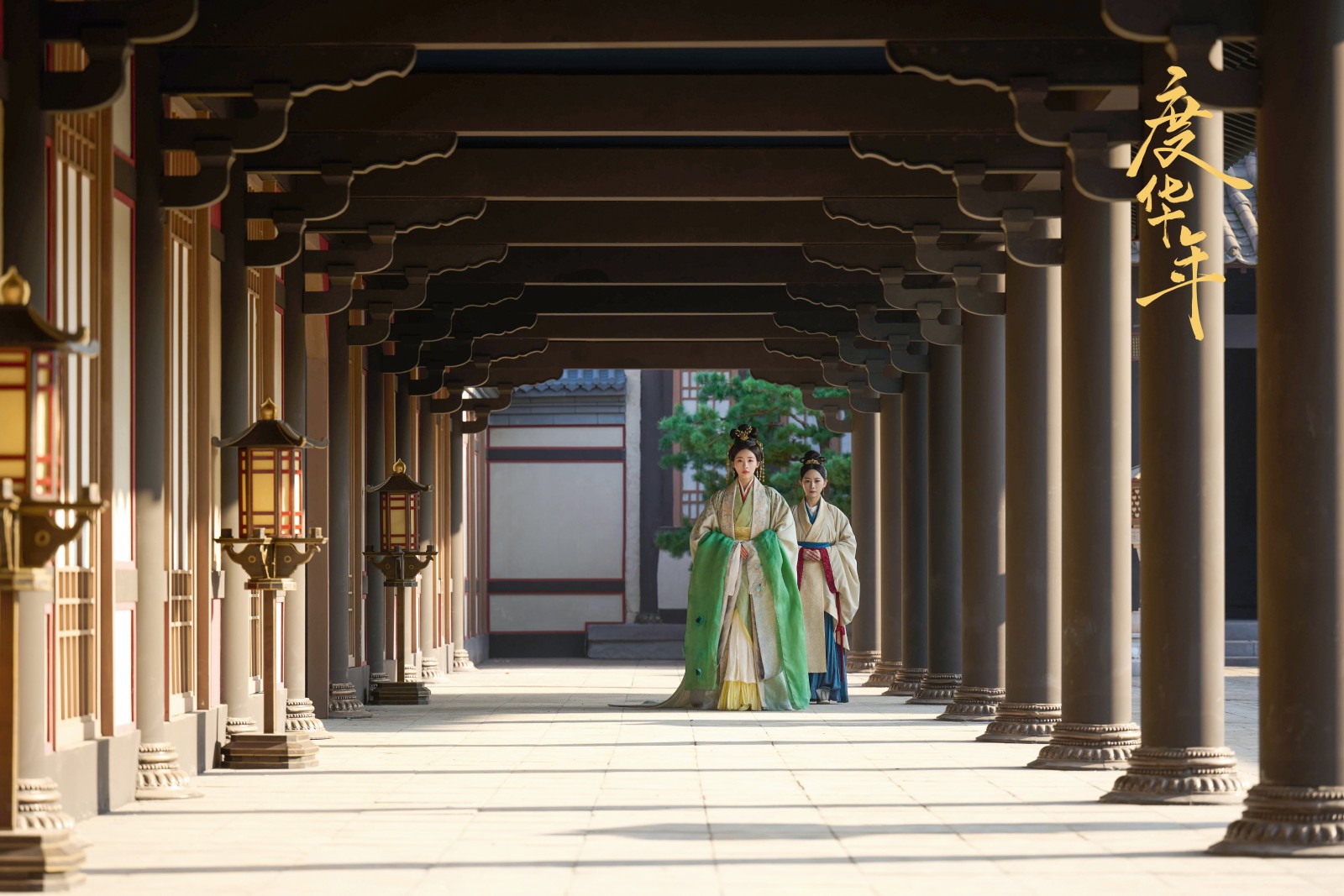
Still from "The Year of Duhua"
I Hope for Everyone to Have a Place at the Table
Zhao Jinmai and Zhang Linghe form a refreshingly new casting combination in recent historical romance dramas. In the industry, "casting actors" is a hurdle every project must overcome; considering character compatibility is only the basic foundation, while many other factors such as project scale, backstage team quality, platform preferences, physical appearances, and acting styles need to be factored in.
When casting "The Year of Duhua," Zhao Jinmai had yet to star in a major historical drama, and Zhang Linghe’s "Dreams of Ning'an" had not aired. Yet, Yuan firmly believed that the two were the best fit for the script and roles. During a table read with Zhang Linghe, she stated, “Pei Wenxuan and Xie Wei are entirely different characters; I hope Pei Wenxuan’s performance is as distant as possible from Xie Wei’s. Pei Wenxuan will be a completely new interpretation.” Regarding Zhao Jinmai, she confidently asserted, “After ‘The Year of Duhua,’ I believe numerous historical female lead scripts will come your way.”
The confirmation of the lead roles also affected the selection of other characters. Since the female lead
